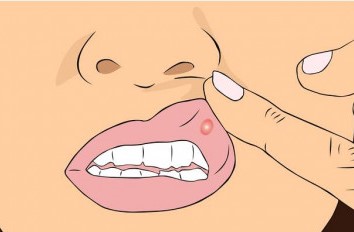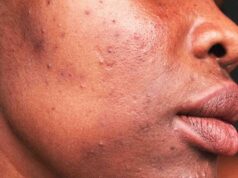Q/ Dear Dr, For over three years now, I have been suffering small wounds in my mouth especially under the tongue and around gums. But they disappear after a week without any treatment. Then they return after six or seven months. What do they signify? Ambrose

Dear Ambrose;
Wounds in the mouth, medically known as aphthous ulcers or Canker sores, are small shallow lesions that develop on the soft tissues in the mouth or at the base of the gums.
Canker sores do not occur on the surface of the lips and they are not contagious. They can be painful, and can make eating and talking difficult.
Symptoms
Most canker sores are round or oval with a white or yellow center and a red border. They form inside the mouth on or under the tongue, inside the cheeks, at the base of the gums, or on the soft palate.
Causes
The cause of canker sores is unknown; the condition may in fact manifest from a combination of factors that might contribute to outbreaks, even in the same person.
Possible triggers for canker sores include;
A minor injury to the mouth from a dental work, overzealous brushing, sports mishaps or an accidental cheek bite
Toothpastes and mouth rinses containing sodium lauryl sulfate
Food sensitivities, particularly to chocolate, coffee, strawberries, eggs, nuts, cheese, and spicy or acidic foods
A diet lacking in vitamin B-12, zinc, folate (folic acid) or iron
An allergic response to certain bacteria in the mouth
Helicobacter pylori, the same bacteria that causes peptic ulcers
Hormonal shifts during menstruation
Emotional stress
Canker sores may also occur because of certain conditions and diseases, such as;
Celiac disease, a serious intestinal disorder caused by a sensitivity to gluten, a protein found in most grains.
Inflammatory bowel diseases, such as Crohn’s disease and ulcerative colitis.
Behcet’s disease, a rare disorder that causes inflammation throughout the body, including the mouth
A faulty immune system that attacks healthy cells in the mouth instead of pathogens, such as viruses and bacteria.
HIV/AIDS, which suppresses the immune system.
Risk Factors
Anyone can develop canker sores. But they occur more often in teens and young adults, and they are more common in females.
Often people with recurrent canker sores have a family history of the disorder. This may be due to heredity or to a shared factor in the environment, such as certain foods or allergens.
Prevention
Canker sores often recur, but you may be able to reduce their frequency by following these tips:
Watch what you eat. Try to avoid foods that seem to irritate your mouth. These may include nuts, chips, certain spices, salty foods and acidic fruits, such as pineapple, grapefruit and oranges. Avoid any foods to which you are sensitive or allergic.
Choose healthy foods. To help prevent nutritional deficiencies, eat plenty of fruits, vegetables and whole grains.
Follow good oral hygiene habits. Regular brushing after meals and flossing once a day can keep your mouth clean and free of foods that might trigger a sore. Use a soft brush to help prevent irritation to delicate mouth tissues, and avoid toothpastes and mouth rinses that contain sodium lauryl sulfate.
Protect your mouth. If you have braces or other dental appliances, ask your dentist about orthodontic waxes to cover sharp edges.
Reduce your stress. If your canker sores seem to be related to stress, learn and use stress-reduction techniques, such as meditation and guided imagery.






















